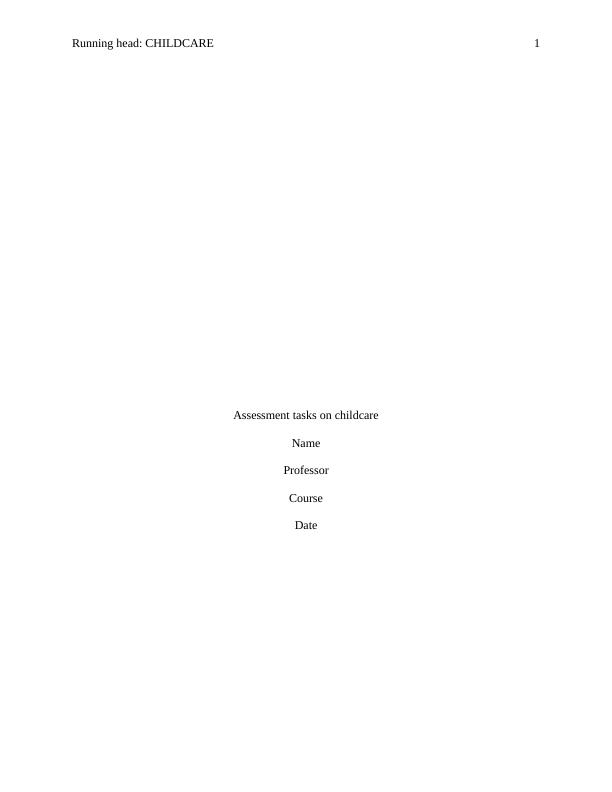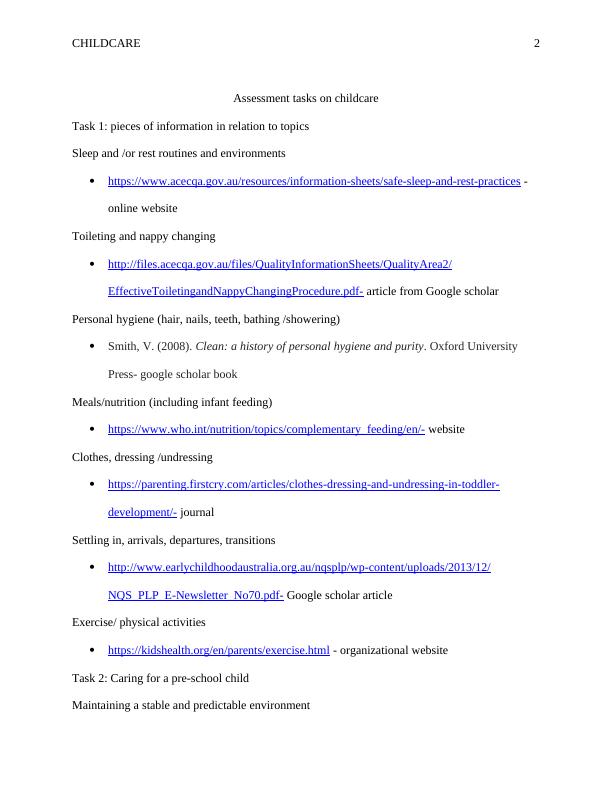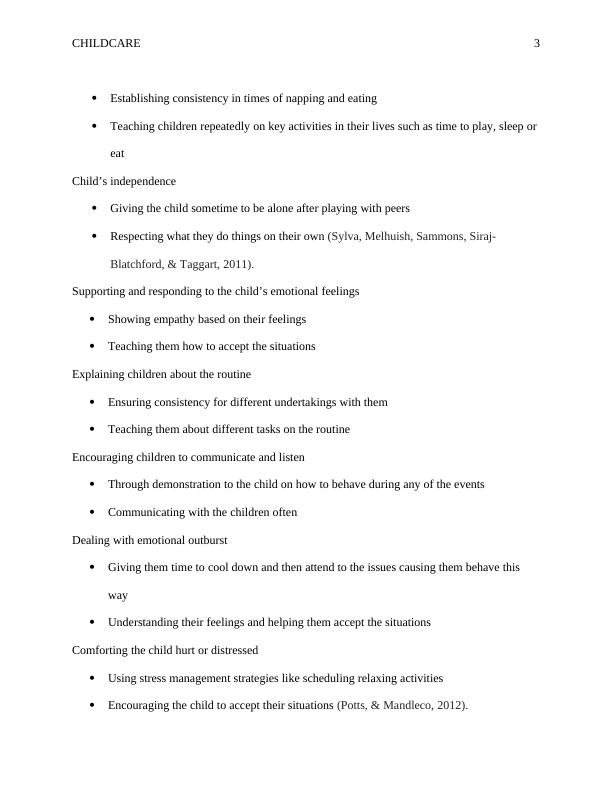Assessment tasks on childcare
6 Pages659 Words120 Views
Added on 2023-03-31
About This Document
This document provides assessment tasks on childcare, including information on sleep routines, toileting, personal hygiene, meals, settling in, exercise, and more. It also offers resources and guidelines for caring for a pre-school child.
Assessment tasks on childcare
Added on 2023-03-31
ShareRelated Documents
End of preview
Want to access all the pages? Upload your documents or become a member.
Food Safety for the Children
|11
|1460
|39
Promoting Learning Health and Safety in Early Childhood Education & Care
|61
|10942
|220



